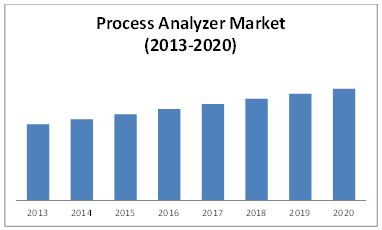Process analyzers are measurement instruments that can identify the chemical constituents present in a process stream and also determine the quantities in which they are present in that process. These instruments are capable of detecting chemicals even if they are present in minute quantities and this makes them very important for the process industries. Process industries often operate under extreme environments and there are possibilities of accidental release of toxic gases, like sulphur dioxide, which could pollute the environment and threaten the lives of people in their vicinity. In such industries, process analyzers enable early detection of such chemicals, making it possible to take corrective actions and thus avoid any serious incidents. Thus, the primary concern of safety can be addressed with the help of these instruments. It also benefits these industries in contributing to the environment by effective monitoring and control of emissions released from their plants.
The advancements in wireless technologies and the development of protocols like wirelessHART have greatly enhanced the application areas for process analyzers. Wireless sensors are easy-to-use, non-intrusive, affordable, and can operate continuously under any type of environments. This makes it possible to install process analyzers in hazardous locations like mines, or oilfields and remotely gather the data transmitted from them. Moreover, advancements in analytical software and embedded sensor intelligence have made it possible to collect large amounts of data from multiple sources, analyze them together, and generate conclusive results to facilitate better decision-making. The benefits of cloud computing can also be leveraged to store data centrally and make it available for all the intended users on their desktops or portable devices at any given time and from any location.
Process analyzers are used in water and wastewater treatment for determining the water chemistry parameters like pH, ORP, and hardness as well as for detecting impurities like silica. Water analysis needs to be performed at all times to determine its purity before using it for industrial or domestic applications. It helps the industries in obtaining the desired product quality and protecting their equipment from silica-related damages. The Process Analytical Technology (PAT) initiative proposed by the Food and Drug Administration (FDA) for the pharmaceutical industry is another enabling factor for process analyzers. The composition of chemicals present in pharmaceutical products must remain intact right from manufacturing till the time of their delivery to the end-user so as to provide the intended benefit to the end-user. This kind of product integrity can be achieved by utilizing process analyzers at all levels in the supply chain of pharmaceutical products.
For more detailed information click here
